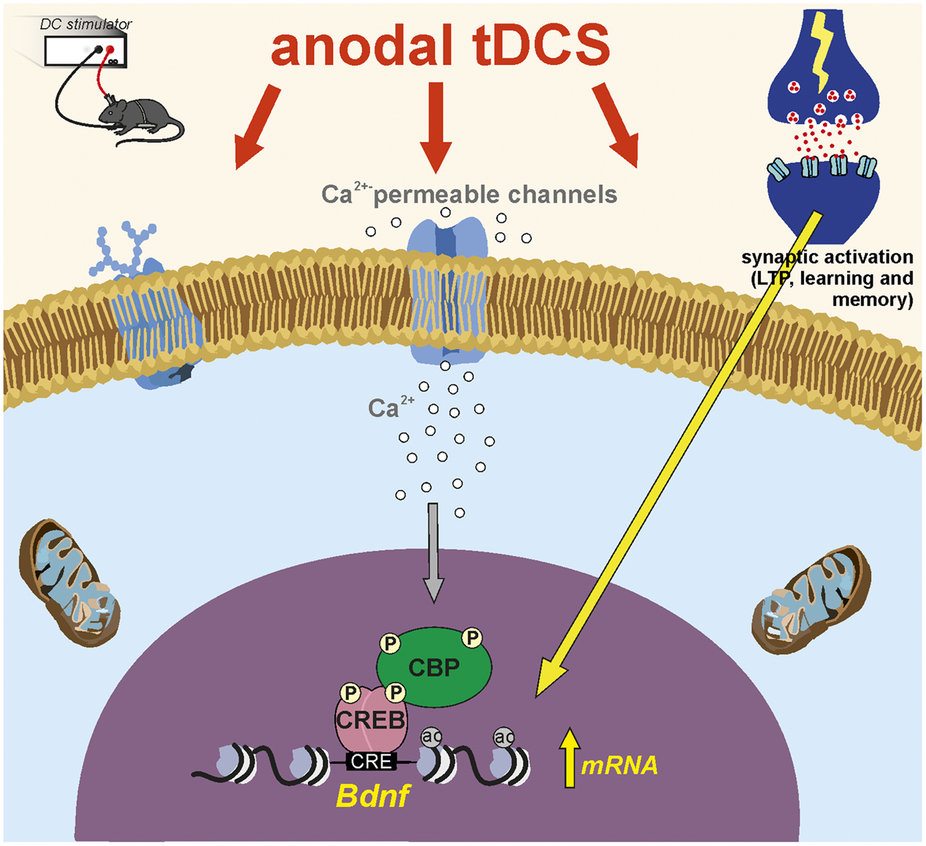Wait! There’s a Science Daily version.
Brain boost: Research to improve memory through electricity?
More important, the researchers identified the actual molecular trigger behind the bolstered memory and plasticity–increased production of BDNF, a protein essential to brain growth. BDNF, which stands for “brain-derived neurotrophic factor,” is synthesized naturally by neurons and is crucial to neuronal development and specialization.
“While the technique and behavioral effects of tDCS are not new,” said ONR Global Associate Director Dr. Monique Beaudoin, “Dr. Grassi’s work is the first to describe BDNF as a mechanism for the behavioral changes that occur after tDCS treatment. This is an exciting and growing research area of great interest to ONR.”
The research is sponsored by the Office of Naval Research!
What he said!
Holy crap! tDCS boosts synaptic plasticity and memory in mice via epigenetic regulation of Bdnf expression. https://t.co/QbtGcYVr8S
— Peter Simpson-Young (@PSimpsonyoung) March 3, 2016
I won’t even pretend to understand this paper at this point, but it’s unique enough that I want to encourage people to have a look. That said… what I think it’s saying is that (in mice) hippocampal tDCS creates a chain reaction that results in increased brain plasticity, i.e. increased neuronal connection which in this case is responsible for increased performance in a memory task. (Not more neurotransmitters.)
But this paper suggests the actual mechanism for how this is happening.
We hypothesized that anodal tDCS induced membrane depolarization mimicking neuronal activation and triggered epigenetic changes at Bdnf, thus favoring its transcription.
All together these results indicate that Bdnf expression in the hippocampus is induced by anodal tDCS and that enhanced acetylation at Bdnf promoter I is likely responsible for such effect.
Collectively, these data suggest that anodal tDCS induced epigenetic changes at Bdnf promoters likely relying on a mechanism involving CREB activation, CBP recruitment and H3K9 acetylation.
These results strongly support our hypothesis that increased histone acetylation promoting Bdnf transcription plays a major role in anodal tDCS-induced enhancement of synaptic plasticity.

